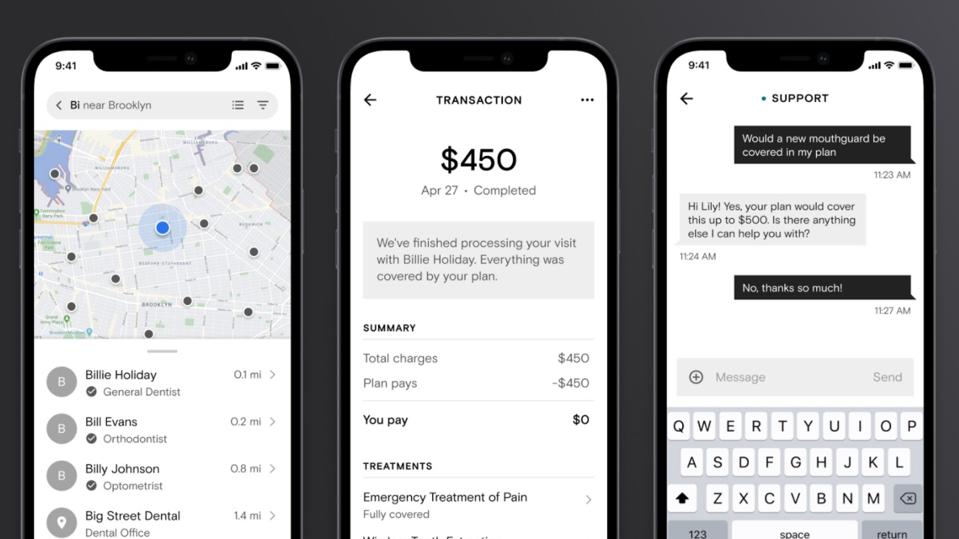There’s no reason why paying for a root canal should be more complicated than paying for a steak dinner. That’s how it looked, at least, to Paul Aaron, one the first 20 employees at digital payments giant Square and later a product manager at Oscar Health, the direct-to-consumer health insurance upstart founded in 2012. Connecting the dots between these two jobs inspired him in 2018 to build Level, a New York startup hoping to sell employers on more efficient and affordable insurance benefits for their employees.
“The big insight behind Level was this idea that insurance is just a way to pay for things,” says CEO Aaron, speaking at 6:30 a.m. over a zoom call from Hawaii (he’s keeping East Coast hours). “It's a product that people really depend on, but it's actually pretty confusing and sometimes can feel very unfair to us.”
After launching employer-sponsored dental plans in 2019, Level closed a $27 million Series A round at a valuation north of $100 million in late 2020, previously unannounced until today. Lightspeed Venture Partners and Khosla Ventures led the round, joined by First Round Capital
FCAP

Level’s early team. From left, software engineer Vikas Unnava, CEO Paul Aaron and strategy lead … [+]
Level
Employees who have access to Level through their work can use its app to search for providers, compare prices for various services, book appointments and handle co-pays then and there, no insurance card or belated paper bills in sight. Claims are typically processed within 4 hours, compared to 30 days or more with some mainstay providers. And while users can see any dentist or optometrist, more than 100,000 providers have an in-network contract (and access to software that tracks patient visits and billing) with Level.
Current customers include several mid-size tech companies like Intercom and Udemy and Level investor First Round. Aaron says his startup saves employers money by giving them insights into the benefits that their workforces uses, allowing HR teams to customize plans and ultimately pay only for the services they need. Intercom, a business messaging startup, says it saved 20% from its previous dental provider, while adding more benefits—such as coverage for adult orthodontia—for its approximately 600 workers. First Round claims it saved 47% year-over-year after switching to Level’s dental coverage.
The funding announcement also accompanies the launch of a new insurance product underwritten in-house. Unlike most traditional group insurance arrangements, where companies annually forfeit the cost of benefits not used by workers, Level now allows businesses to pay a fixed amount each month and receive a refund at the end of the year for any unused benefit. Critically to companies with tight balance sheets, they will never have to pay for costs beyond the monthly fee. The shift allows businesses as small as two people to adopt Level’s self-funded model historically accessible only to large corporations that could absorb the cost of unexpected, expensive procedures like an emergency surgery. (And luckily for Level’s costs, these hefty bills aren’t as common in dental or vision care.)

Level hopes that its simple app will attract customers.
Level
Insurance is not the sexiest industry, but it is lucrative. In 2019, U.S. healthcare spending reached $3.8 trillion, more than 17% of the gross domestic product that year, according to the Centers for Medicare & Medicaid Services, and census data indicates that about 55% of the population—more than 180 million people—received employer-sponsored insurance. Venture capitalists have taken note, investing more than $7 billion across 377 “insurtech” deals in 2020—a four-fold dollar-amount increase from 2016, per private markets data provider CB Insights.
Level won’t have an easy path, as it takes on giants with footprints to match. Healthcare insurer Cigna
CI
AET
At 10,000 employees covered today, Level is barely a blip competitively—but Jana Messerschmidt, a partner at Lightspeed, has given the startup a vote of confidence twice over, having backed Level both personally and professionally. (She first joined the startup’s seed round as an angel investor in 2018 before Lightspeed hired her later that year.)
“This is one of these companies that has the potential to become Stripe-sized in this new fintech meets insurance tech space,” she says. “There are a lot of things that have to go right for the company for that to happen.”


